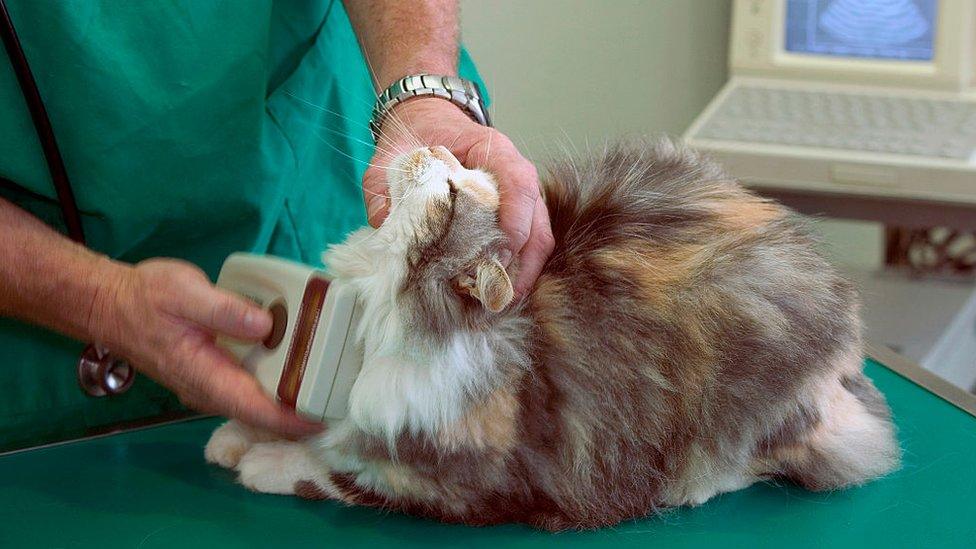Puppy smuggling: Rise in cases prompts new welfare rules
- Published
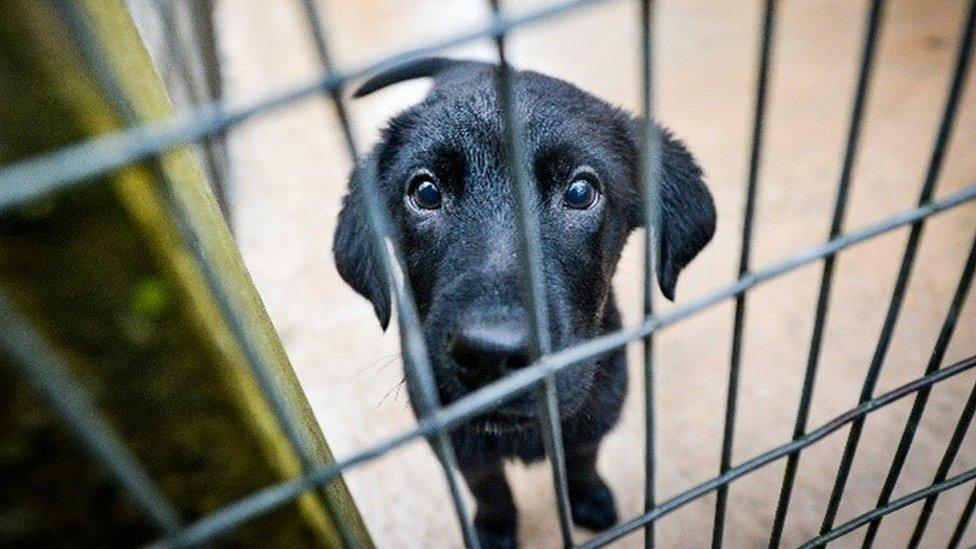
Tara was less than five weeks old and sick with a potentially deadly virus when she was smuggled into Dover
Welfare standards for dogs imported to the UK are to be tightened amid a rise in the "grim trade" of puppy smuggling, the government has said.
Plans include raising the minimum age for imported puppies from 15 weeks to 6 months and banning the importing of dogs with cropped ears or docked tails.
Bringing heavily pregnant dogs into the UK would also be banned.
The number of puppies seized at the border jumped from 324 in 2019 to 843 last year.
They were just a fraction of the 66,000 dogs imported into the UK in 2020 but the Department for the Environment, Food and Rural Affairs said poor treatment and smuggling was on the increase.
In one case, four beagle puppies were found - hungry, dehydrated and just eight weeks old - in the back of an abandoned vehicle in London.
They were believed to have been illegally imported from the Republic of Ireland.
Six puppies, too young to be imported, were seized at the port of Dover after being smuggled from Romania. Covered in sticky oil and suffering from diarrhoea, they had been travelling in a van for 24 hours.
By raising the minimum age for importing puppies, the government hopes to prevent them from being separated from their mothers too early, which can increase their risk of illness and death.
The rise in puppy smuggling comes amid a surge in demand for puppies during the last 18 months of coronavirus lockdowns, with prices in some areas more than doubling to an average of almost £1,900 each.

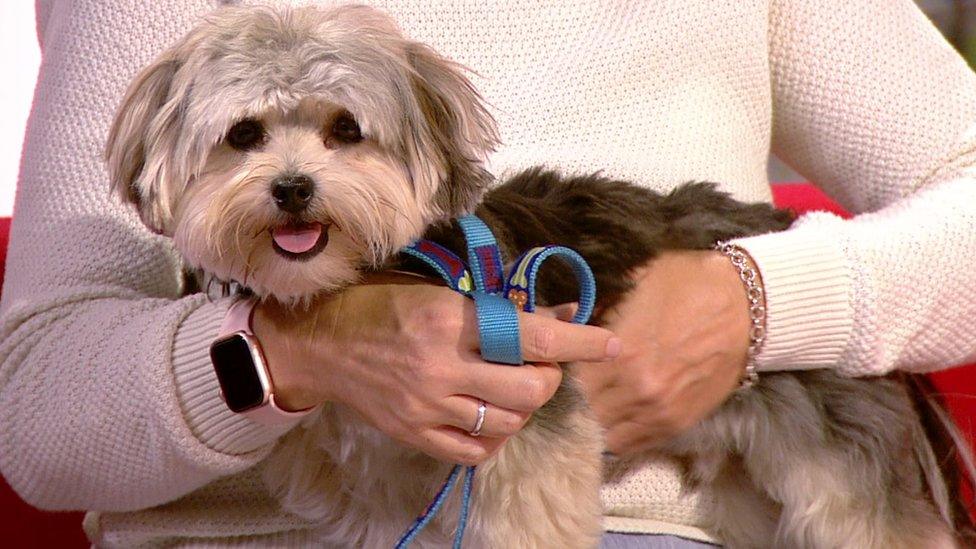
Chewie, a one-year-old Yorkshire terrier cross, was one of 11 puppies rescued by police from the back of a van in Nottinghamshire in March.
The puppies are thought to have been imported from Ireland to be sold in the UK and were found in a carrier bag and a guinea pig cage.
Sadly five or six of the puppies died from illness, but Chewie escaped without any long-term issues, says owner Elizabeth Morgan, who rehomed him from the RSPCA.
"He's doing really well...[but] he doesn't like carrier bags or cardboard boxes," Elizabeth told BBC Breakfast.

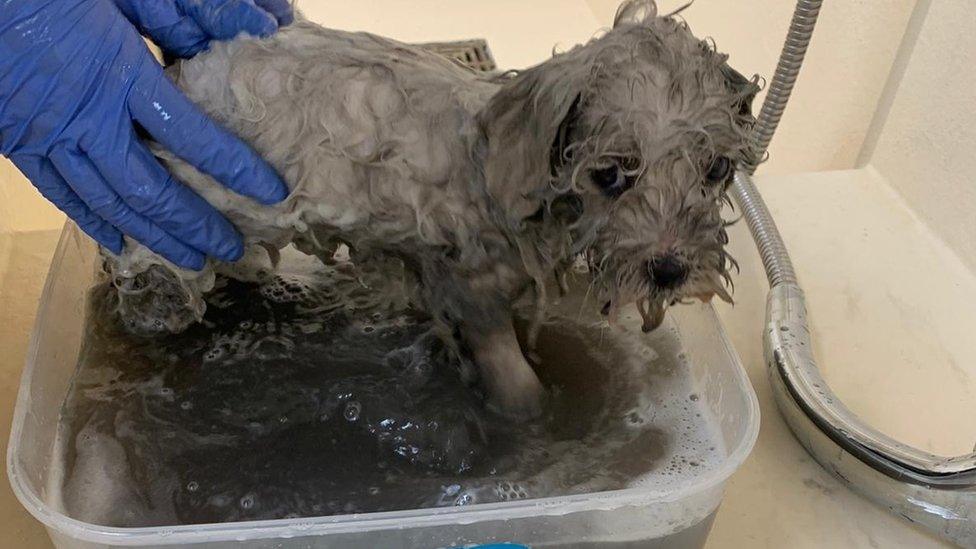
This puppy in the care of the Dogs Trust was found covered in oil
Animal Welfare Minister Lord Goldsmith said: "Puppy smuggling is a grim trade, and we are determined to clamp down on it.
"Raising the minimum import age for puppies will help protect thousands of animals that are brought into the country each year and stop criminals looking to profit from the rise in demand for pets."
Animal welfare charities say cropped ears - when dogs have their outer ears surgically altered or removed to make them look more aggressive - have also been on the rise, despite being banned in the UK since 2006.

There has been a huge increase in commercial imports of puppies to the UK, according to the RSPCA
The RSPCA has said reports of ear cropping have risen more than sevenfold over the past five years.
Most are thought to have undergone the painful procedure abroad and under the proposed new rules - which the government said would be put out for consultation - dogs with cropped ears would be prevented from entering the country, Defra said.
Owen Sharp, chief executive of Dogs Trust, which has campaigned for a crackdown on puppy smuggling, said the charity had cared for more than 2,000 puppies seized at UK borders since 2015.
"We have seen puppies as young as four weeks old being smuggled into the country and dogs with open wounds from ear cropping as well as heavily pregnant dogs close to giving birth," he said.
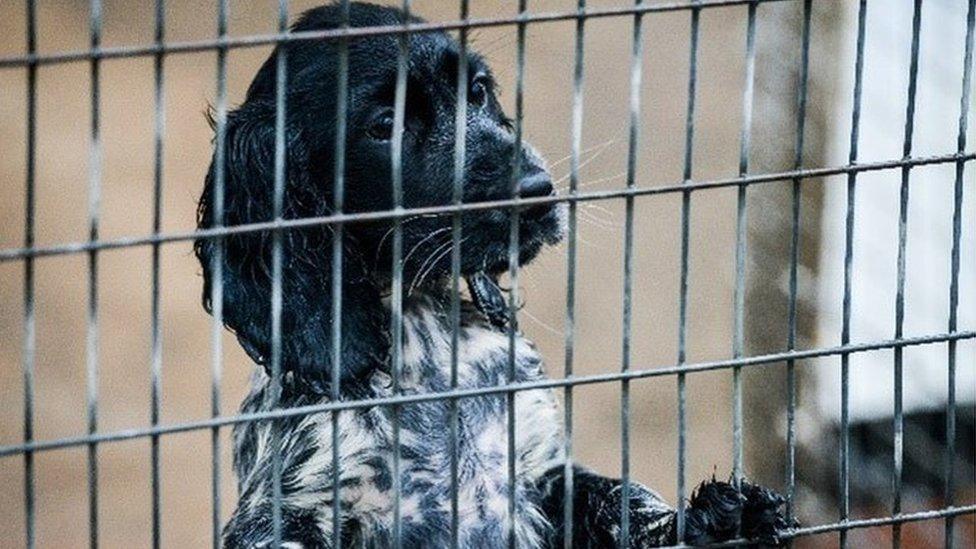
Springer spaniel Befa was transported in a cat carrier crammed with puppies for thousands of miles from Slovakia
But he said he hoped the new rules would include tougher penalties for illegal imports of dogs.
Only a handful of cases had ever been prosecuted under existing laws and the penalties were "no deterrent", Mr Sharp said.
Vet, broadcaster and animal welfare campaigner Dr Marc Abraham said legal and illegal importation of young puppies had encouraged dog exploitation and poor welfare practices for years.
He said the new proposals represented "significant progress in the fight against these cruel practices".
Related topics
- Published26 April 2021
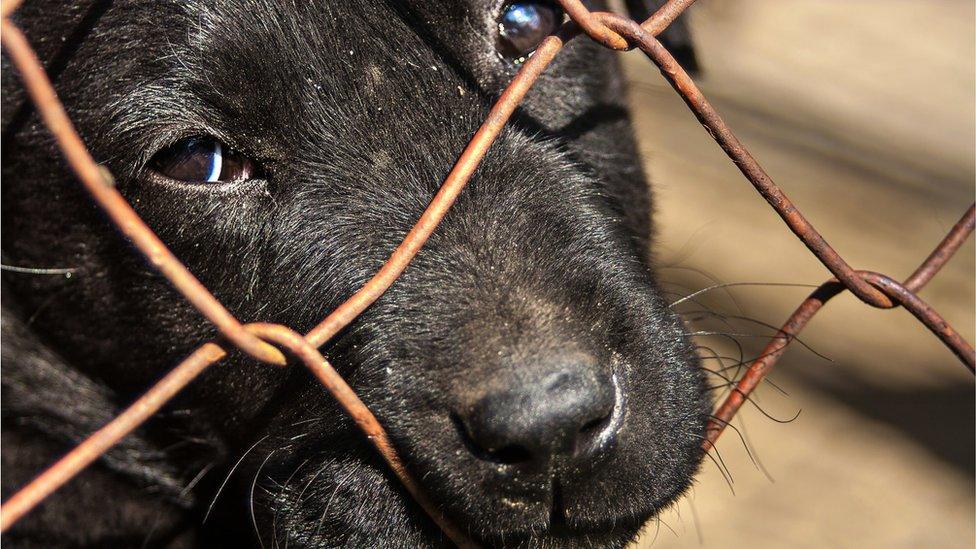
- Published12 April 2021

- Published22 July 2021

- Published9 May 2021
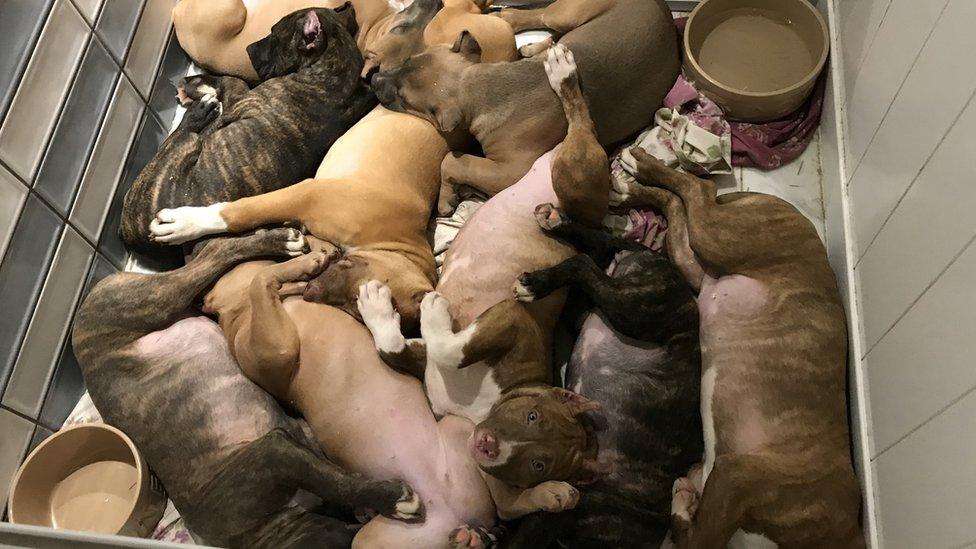
- Published12 May 2021
